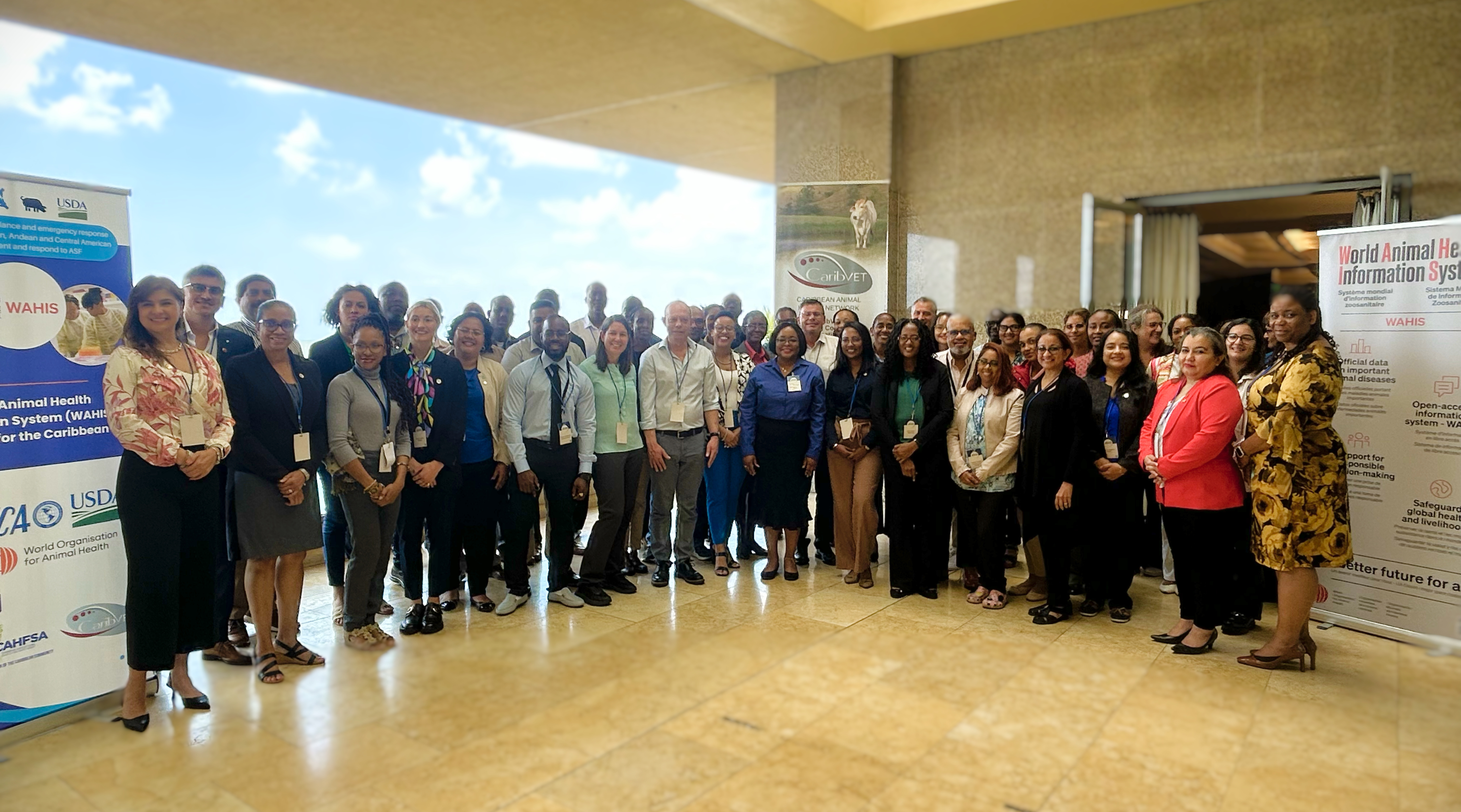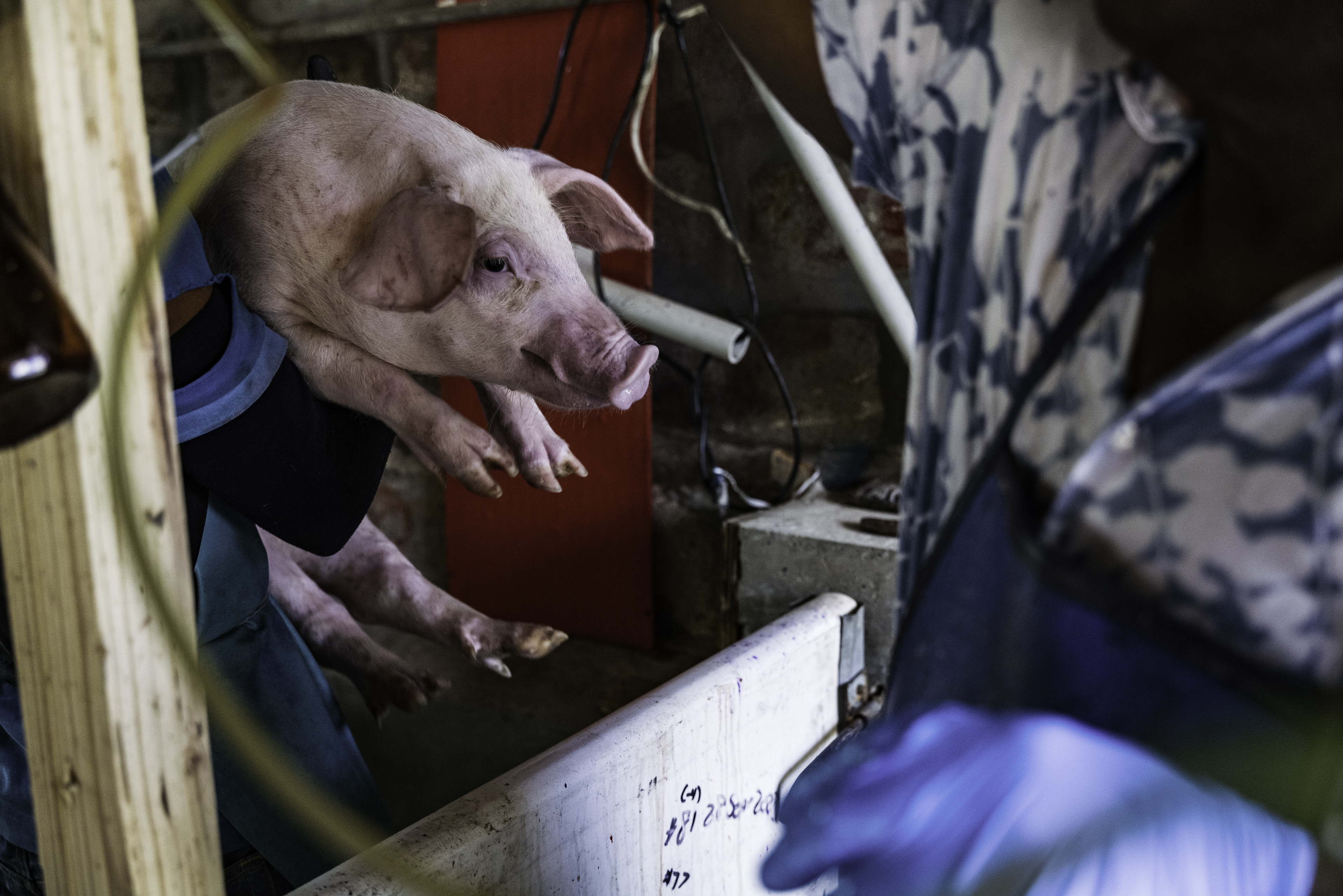The Caribbean region, a culturally diverse group of islands, faces increasing environmental challenges such as hurricanes, droughts and rising sea levels. These natural disasters not only affect local communities, but also have a direct impact on the spread of animal diseases by altering vector distribution, international trade patterns and animal movement. In the face of these challenges, international cooperation and the strengthening of disease alert and monitoring systems, such as the World Animal Health Information System (WAHIS), play a key role in ensuring rapid and effective responses to animal health and environmental crises.
In this context, the World Organisation for Animal Health (WOAH), in collaboration with the Inter-American Institute for Cooperation on Agriculture (IICA), organized a workshop in March 2025 to train Caribbean countries in the use of the WAHIS system. More than 30 participants attended the training, funded with support from the United States Department of Agriculture (USDA), where they had the opportunity to learn how to report animal disease cases and analyze the data provided by the platform to guide crucial decisions.
The workshop also included the participation and support of the Caribbean Agricultural Health and Food Safety Agency (CAHFSA) and the Caribbean Animal Health Network (CaribVET) as partners in the project.
‘These types of activities represent strategic investments as they help us strengthen our region’s capacity to respond to emerging animal health threats,’ remarked Dr Ric Javid-Ali, Deputy Permanent Secretary in the Ministry of Agriculture, Land and Fisheries of Trinidad and Tobago, at the opening of the event.
One of the most important missions of WOAH is to ensure timely and transparent access to animal health information reported by countries. To meet this objective, the organisation has developed a data system that has evolved significantly over time, from telegrams to the online platform we know today as WAHIS. Since its launch in 2005, WAHIS has disseminated more than 5,000 notifications that have enabled countries to identify animal and human health threats and implement effective and timely control measures.
In addition to contributing to safe trade, the WAHIS system offers trade benefits to countries that regularly report their status, as transparency facilitates new opportunities in international markets. In this way, confidence in national health systems is strengthened, protecting public and animal health. ©WOAH/Animal Pensant
‘WAHIS is a critical tool in efforts to improve early warning systems at the regional level as it allows countries to share sanitary information, coordinate responses, and better manage risks,’ said Dr Ericka Calderon of IICA.
As it has been for 100 years, animal health data collected by WOAH is freely available to everyone: government agencies, industry, researchers, academics and journalists, in line with the Organisation’s founding principle that access to reliable information in a timely manner is crucial for effective global action in animal and public health.
The story of the Caribbean Veterinary Services is a clear example of resilience. Just as animals thrive on these islands, so too can pathogens. ‘Now more than ever, with the latent threat of diseases such as avian influenza and African swine fever, it is critical to ensure that all countries in the region have access to accurate and up-to-date health information to strengthen their response capacities and prevent devastating outbreaks’ said Dr Catya Martinez, WOAH’s Sub Regional Representative for Central America and the Caribbean.
Strengthening tools such as WAHIS, allows the Caribbean to move towards better health management, but also ensures a more resilient future in the face of the effects of climate change and natural disasters.
More information:

